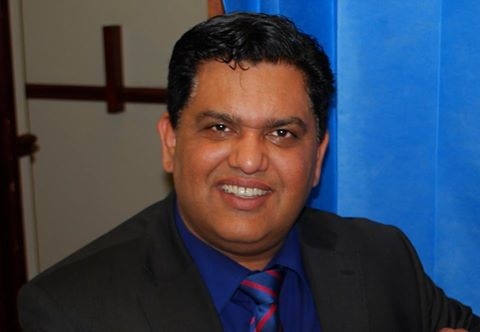Health: Hope lies in asking for help, says Dr Zahid Chauhan
Date published: 06 December 2016

GP Dr Zahid Chauhan
Health advice by Dr Zahid Chauhan...
Light holds great significance at this time of year. The lights on the tree, light signalling re-birth at solstice or indeed the central theme of the Christian Christmas message: “The people walking in darkness have seen a great light”.
However, for some people, shade, darkness and despair are actually amplified at Christmas – with depression and isolation replacing merriment and cheer.
It is perhaps not a subject we like to talk about, especially at this “most wonderful time of the year”, but our inability to open-up and confront problems like depression might explain why suicide is the second biggest killer of young men under 45 in the UK.
Researchers have offered many reasons for why depression might be more prevalent at Christmas. And it isn’t always about people seeing others enjoying themselves and wondering why they are not. Stress levels (caused sometimes by work deadlines and family issues) shoot up. Money worries increase as people grow concerned about how they will pay for Christmas and cold weather and less sunlight as we approach the shortest day also play a part.
Depression is often a deep-seated, sometimes genetic and often physical problem that can be connected with brain function – and it certainly doesn’t take a holiday just because it happens to be Christmas.
However, the positive message I am bringing, is this: help is at hand, and if local statistics are anything to go by, Rochdale is getting a handle on depression.
For adults, the Healthy Minds service offers support and treatment for those who are experiencing symptoms such as worry or anxiety, feelings of hopelessness or panic attacks.
It also aids those dealing with the effects of a long-term health problem or chronic pain, obsessive compulsive disorder (OCD), phobias, or eating difficulties.
Family doctors can refer patients to this and other schemes which offer support. GPs now take a far more progressive and sympathetic approach to depression and a visit may not automatically result in the prescription of drugs – more likely a referral to talking therapy sessions, mindfulness or cognitive behavioural therapy which coaches new responses in the way we think and behave.
These treatments are having an effect. Figures from the Office of National Statistics showed that suicides in Rochdale had reduced from 31 in 2014 to 11 in 2015.
The loss of those 11 lives of course, remains wholly unacceptable and it is my belief that we will never really tackle depression until people are prepared to ask for help – men, in particular. Stress, anxiety and low mood are not signs of weakness. Fighting them by seeking support is actually an indication of strength - and that can begin by simply having a quick chat with your GP.
If you do need support this Christmas time, please contact your local doctor or telephone
The Samaritans free at any time on 116 123.
To access support from Healthy Minds, an NHS talking therapies service, you can contact the team online at www.penninecare.nhs.uk/healthyminds or call 01706 261940.
Do you have a story for us?
Let us know by emailing news@rochdaleonline.co.uk
All contact will be treated in confidence.
Most Viewed News Stories
- 1Middleton school hails another outstanding inspection result
- 2Drugs and cash seized during morning raids at suspected stash houses
- 3Former councillor and hospital campaigner Jean Ashworth has died
- 4No trams between Oldham and Rochdale this Sunday
- 5Northern Healthcare opens supported living service in former Rochdale hotel
To contact the Rochdale Online news desk, email news@rochdaleonline.co.uk or visit our news submission page.
To get the latest news on your desktop or mobile, follow Rochdale Online on Twitter and Facebook.


